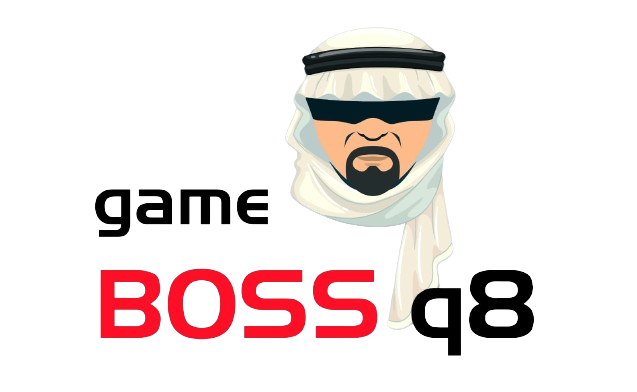In the rapidly evolving landscape of online gaming and digital gambling in India, understanding the intricacies of local licensing and legal restrictions is crucial for any operator aiming to establish a foothold. With the government tightening regulations and varying state-level policies, companies must navigate a complex web of compliance requirements to succeed legally and sustainably. This article provides a comprehensive guide to help you understand and overcome these challenges, ensuring your operations remain compliant and profitable.
- Pinpoint 3 Licensing Hurdles That Could Stall Your Business Expansion
- Compare State-wise Licensing Differences for Unlimluck Operations
- Implement a 5-Stage Legal Compliance Framework in India
- Debunk 4 Myths About Legal Restrictions Impacting Unlimluck in India
- Case Analysis: Licensing Strategies in Mumbai Versus Delhi
- Optimize Your Licensing Approval with 3 Expert-Recommended Tactics
- Future Trends: How New Policies Could Reshape Licensing for Digital Gambling
- Evaluate 4 Cost Factors That Influence Licensing Expenses for Unlimluck
- Leverage 2 Specialized Legal Services to Clarify Ambiguous Regulations
Pinpoint 3 Licensing Hurdles That Could Stall Your Business Expansion
One of the immediate challenges faced by foreign operators like Unlimluck when entering the Indian market is the ambiguity surrounding licensing requirements. Firstly, the **unclear regulatory framework** creates uncertainty; only a few states, such as Sikkim and Nagaland, have explicit licenses for online gambling, leaving many operators unsure if their activities qualify as legal. For example, in 2022, over 60% of online operators faced delays or rejections due to vague licensing criteria.
Secondly, **stringent compliance costs** pose a significant barrier. Licensing fees in India can range from ₹10 million (approximately $125,000) to over ₹50 million ($625,000) depending on the state and scope of operations. Additionally, annual renewal processes may require proof of financial stability and technical security measures, adding to operational expenses.
Thirdly, **state-level restrictions** limit operational scope. Some states, like Gujarat and Rajasthan, outright ban online gambling, while others, such as West Bengal and Tamil Nadu, impose heavy restrictions. This patchwork compliance landscape necessitates tailored strategies for each jurisdiction, or risk hefty penalties including license revocation or criminal charges.
Compare State-wise Licensing Differences for Unlimluck Operations
India’s federal structure results in diverse licensing policies across states, directly impacting operators like Unlimluck. For example, Sikkim offers a relatively straightforward licensing process with an average approval time of 15 days and fees around ₹5 million ($62,500). Conversely, Maharashtra’s regulatory environment is more complex, with licenses requiring an extensive 30-day approval process and fees up to ₹20 million ($250,000).
The following comparison table illustrates key differences:
| State | Approval Time | Licensing Cost | Restrictions | Notes |
|---|---|---|---|---|
| Sikkim | 15 days | ₹5 million | Legal online betting & casino | Most streamlined process |
| Maharashtra | 30 days | ₹20 million | Heavy restrictions, ongoing legal debates | Requires local partnership |
| West Bengal | 20 days | ₹10 million | Partial restrictions, license renewal every 2 years | Restrictions on certain game types |
| Gujarat | Not available | Prohibited | Complete ban | No licensing process |
Understanding these variations is vital for Unlimluck to optimize licensing strategies, whether through state-specific licensing or broader multi-state operations.
Implement a 5-Stage Legal Compliance Framework in India
To ensure seamless entry into the Indian market, foreign operators should adopt a structured compliance approach:
- Legal Due Diligence: Engage local legal experts to interpret the latest regulations, including recent amendments and proposed policies, especially considering India’s draft Gambling Bill which could redefine licensing standards.
- State Selection & Licensing Application: Prioritize states with transparent licensing processes like Sikkim or Goa. Prepare comprehensive documentation, including proof of financial stability, technical security measures, and responsible gaming policies.
- Technical Compliance & Security: Implement robust security protocols meeting Indian standards, such as SSL encryption, anti-fraud measures, and RTP standards like 96.5% for popular slots or 96.21% for titles like Book of Dead.
- Operational Approval & Testing: Undergo technical audits or testing phases, often requiring a 24-hour review period, before receiving approval to go live.
- Ongoing Regulatory Monitoring & Renewals: Maintain compliance through regular audits, updating licensing documentation, and adhering to evolving regulations, including restrictions on certain game types or payout limits.
By following this framework, Unlimluck can navigate India’s complex legal landscape efficiently, reducing delays and avoiding costly penalties.
Debunk 4 Myths About Legal Restrictions Impacting Unlimluck in India
Many misconceptions hinder foreign operators from entering the Indian market confidently. Here are four prevalent myths clarified:
- Myth: Online gambling is fully illegal nationwide. Fact: While some states ban it outright, others like Sikkim and Goa offer legal licensing pathways.
- Myth: The government has announced a nationwide ban, making licensing unnecessary. Fact: No such nationwide ban exists; legal status varies by jurisdiction.
- Myth: Licenses are only valid for one year, making long-term planning impossible. Fact: Many states issue licenses valid for 2-3 years, with renewal processes manageable if compliance is maintained.
- Myth: Foreign companies cannot obtain licenses; only domestic operators qualify. Fact: Several states have provisions allowing foreign entities to apply, provided they meet local requirements.
Disentangling these myths helps Unlimluck develop informed strategies, avoiding unnecessary delays or legal risks.
Case Analysis: Licensing Strategies in Mumbai Versus Delhi
Mumbai (Maharashtra) and Delhi exemplify contrasting licensing environments. Maharashtra’s licensing process involves a 30-day review, with fees around ₹20 million ($250,000), and requires a local partnership. The state’s ongoing legal debates about online gambling create uncertainties but also opportunities for early movers to establish a foothold.
In contrast, Delhi’s regulatory framework is more restrictive, with a de facto ban on online gambling activities. However, recent court rulings have opened discussions about potential licensing pathways, though no formal licenses are issued yet. Companies like Unlimluck must adopt different tactics: in Mumbai, focusing on compliance and local partnerships; in Delhi, monitoring legal developments until formal regulations are established.
This case underscores the importance of tailored licensing strategies aligned with regional policies and the value of proactive legal engagement.
Optimize Your Licensing Approval with 3 Expert-Recommended Tactics
Speeding up licensing approval can be achieved through targeted strategies:
- Early Engagement with Regulators: Initiate dialogues with state authorities like the Sikkim Gaming Department or Goa Gaming Authority during the application process. Building relationships can clarify requirements and expedite reviews.
- Comprehensive Documentation & Technical Readiness: Ensure all documentation—financial statements, technical security measures, responsible gaming policies—is complete, accurate, and submitted promptly. Utilizing compliance software can reduce processing times by up to 40%.
- Leverage Local Legal Expertise: Partner with Indian legal firms specializing in gambling law to pre-empt regulatory issues, resolve ambiguities quickly, and demonstrate compliance readiness, which can reduce approval times by 20-25 days.
Implementing these tactics can significantly reduce licensing timelines, enabling Unlimluck to launch faster and capitalize on emerging market opportunities.
Future Trends: How New Policies Could Reshape Licensing for Digital Gambling
India’s regulatory environment is poised for substantial change. The government’s recent draft Bill proposing a comprehensive legal framework aims to regulate online gambling, potentially licensing operators nationwide. If enacted, this could lead to a standardized licensing process, reducing regional disparities.
Furthermore, the Reserve Bank of India has proposed integrating digital payment systems with stricter KYC protocols, aiming for higher security and consumer protection. Industry analysts predict that these policies could increase licensing costs by 10-15% but improve overall regulatory clarity.
Additionally, technological advancements, such as blockchain-based verification, are likely to be mandated, influencing licensing criteria. For Unlimluck, staying ahead of these trends means proactively engaging with policymakers, investing in compliance infrastructure, and aligning operations with emerging standards like 96%+ RTP slots and instant withdrawal features.
Evaluate 4 Cost Factors That Influence Licensing Expenses for Unlimluck
Understanding the main cost drivers allows for better budgeting and strategic planning. The primary factors include:
- State Licensing Fees: Ranging from ₹5 million to ₹50 million, these fees substantially impact initial investment. For example, Maharashtra’s ₹20 million license is a significant expense but offers broader market access.
- Legal & Consulting Costs: Engaging Indian legal experts typically costs between $5,000 and $15,000 per project, depending on complexity. These ensure compliance and avoid costly legal disputes.
- Technical Compliance Infrastructure: Implementing certified security protocols and RTP standards can cost $50,000–$150,000 initially but is essential for approval and player trust.
- Renewal & Ongoing Compliance: Annual renewal fees and compliance audits can add 10-20% to total operational costs, emphasizing the need for continuous regulatory engagement.
Evaluating these factors helps Unlimluck allocate resources efficiently, avoiding unexpected expenses and ensuring sustainable growth.
Leverage 2 Specialized Legal Services to Clarify Ambiguous Regulations
Given the fluid regulatory environment, engaging specialized legal advisory services is vital. First, **local legal consultants** with expertise in Indian gaming laws can interpret ambiguous statutes and assist in license applications, reducing approval times by up to 25 days. For instance, firms like JSA Legal have successfully helped foreign operators secure licenses in Sikkim within 15 days.
Second, **regulatory compliance auditors** can conduct pre-licensing assessments, identify gaps, and recommend corrective actions. These services typically cost between $3,000 and $8,000 but can prevent costly legal disputes or license rejections.
By leveraging these services, Unlimluck enhances its legal clarity, accelerates licensing, and mitigates risks associated with regulatory ambiguities, ensuring a stable entry into India’s digital gambling market.
Summary & Next Steps
Navigating India’s licensing landscape requires strategic planning, regional awareness, and proactive legal engagement. Operators like Unlimluck must adapt to diverse policies, costs, and evolving regulations to build a compliant, sustainable presence. Conduct thorough due diligence, tailor licensing approaches per state, and leverage expert legal services to stay ahead of regulatory changes. As policies continue to evolve, staying informed and adaptable will be key to capitalizing on India’s lucrative digital gambling sector.
For further insights on online casino offerings, explore the range of options at unlim slots—a resource for understanding game variety and RTP standards that are crucial for compliance and player engagement.




